Q: I think natural bodybuilders lose too much muscle for contests. It seems that in order to get down to the shredded bodyfat percentage that most aim for, they sacrifice a tremendous amount of muscle in the process. There’s got to be a better target bodyfat level, probably as high as 7 to 9 percent. You won’t come in diced, but at least you’ll still have a respectable amount of mass. If a natural diets down below that, it doesn’t take long for the muscle to melt away as well. Being careful not to mention banned topics, I’ll just point out that Schwarzenegger always said that certain “things” were mainly to help him maintain mass as he entered the contest-prep phase. I suspect that those certain things really do make a big difference in terms of retaining muscle when you diet. So naturals have to take that into account—i.e., we can’t diet down as drastically, unless we want to come in looking like a ripped swimmer. For me, bodybuilding is primarily about building muscle, more so than getting diced at 3 to 4 percent bodyfat. You obviously go into contests with a respectable amount of mass. What are your thoughts on this?”
A: Wow, I couldn’t agree more. When I was competing, my main goal was to be big and look like a real bodybuilder. My goal in the off-season was always to get bigger so that when I dieted down, I would be bigger and more improved than the year before. I would try and get as ripped as I could, but I did everything possible to keep that muscle for the contest. Sometimes I would diet as long as 20 weeks to get ready for a show so I could go really slowly in order to retain all my mass.
When I look at some of the natural bodybuilders today, to be honest, I am not impressed at all. True, they have ripped glutes and are supershredded, but they look so damn skinny. When I won the ’96 Natural Mr. Universe, that was the biggest I ever was for a contest. I weighed 208 pounds, and my arms were 19 inches onstage. The judges didn’t really like my look, though, because they wanted me to be more ripped—so when I competed two years later in the first Natural Olympia, I got about five pounds lighter and came in more ripped.
That said, I always, always, always tried to hold on to my muscle as much as possible. That was the reason I was able to win as many shows as I did. I was usually the biggest and thickest guy onstage. I just needed to get ripped enough to do well. I never had ripped glutes, however, and I don’t know if I ever could get them. My abs were ripped, I had striations in my lower back, and I was very vascular all over, but I was never so ripped that I would lose as much muscle as some of the guys today do. So, yeah, I agree with you 100 percent.
It’s very difficult for a natural bodybuilder to hold muscle while losing as much fat as possible. One of the biggest advantages of using steroids and other physique-enhancing drugs is that they help tremendously in retaining and even building more muscle tissue during contest prep. Even in cases where bodybuilders are eating very low calories or carbohydrates and doing a lot of cardio (which is very catabolic for muscle tissue), they will not lose any muscle because the drugs help to retain their size.
That’s why many natural bodybuilders today don’t gain much bodyfat during the off-season. They know that in order to do well in competitions, they have to be extremely ripped. Because they stay very lean in the off-season, they don’t have to diet as hard or do as much cardio in order to become ultra-ripped, but they are also holding themselves back because it’s almost impossible to gain muscle while eating a very lean diet.
If you are relatively young—20s and early-to-mid-30s—and you have a fast metabolism, spend your off-season building as much muscle as possible. Even though I would compete at about 205 pounds, I would normally bulk up to 235 to 240 in the off-season every year. My primary goal was to increase my muscle mass by eating a tremendous number of calories and training very heavy. I didn’t care if I put on some bodyfat because I knew that the extra calories and carbs were helping me add valuable muscle tissue. I could always get rid of the fat when it was time to diet down, but the off-season was for building muscle.
When I reached my late 30s, I discovered that the bulking-up process did not work for me anymore. My metabolism was slower, so eating more calories and carbs ended up adding more fat than muscle. In addition, my body could no longer take the extremely heavy training, so it made sense to go a little lighter in my workouts and not eat as many calories to keep my bodyfat lower. That said, I had already built a lot of muscle from all my previous years of training, so I relied on that mass to still be successful in competition. If I hadn’t put in all those years of heavy training and eating, I would not have built the physique that I did.
Editor’s note: John Hansen has won the Mr. Natural Olympia and is a two-time Natural Mr. Universe winner. Check out his Web site at www.NaturalOlympia.com for more information about how you can be a part of his exciting new Natural Olympia Fitness getaway. Send questions or comments to [email protected]. Look for John’s DVD, “Natural Bodybuilding Seminar and Competitions,” along with his book, Natural Bodybuilding, and his training DVD, “Real Muscle,” at his Web site or at Home Gym Warehouse, www.Home-Gym.com. Listen to John’s show, Natural Bodybuilding Radio, at NaturalBodybuildingRadio.com. IM













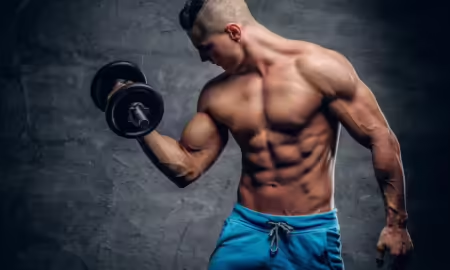

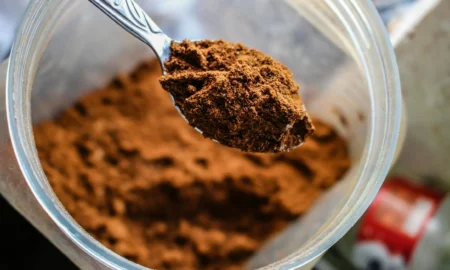
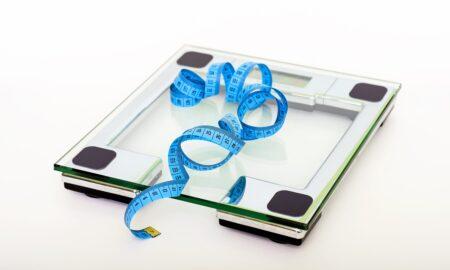

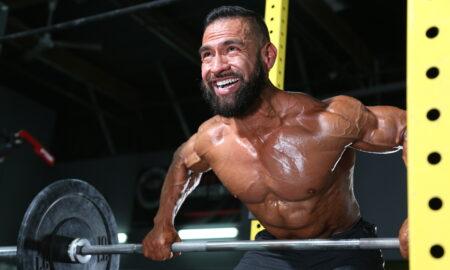
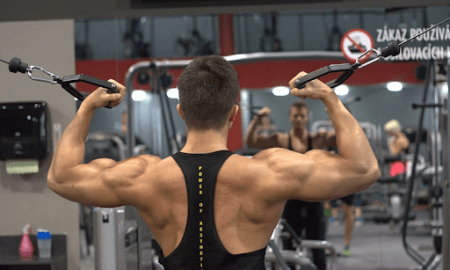
You must be logged in to post a comment Login